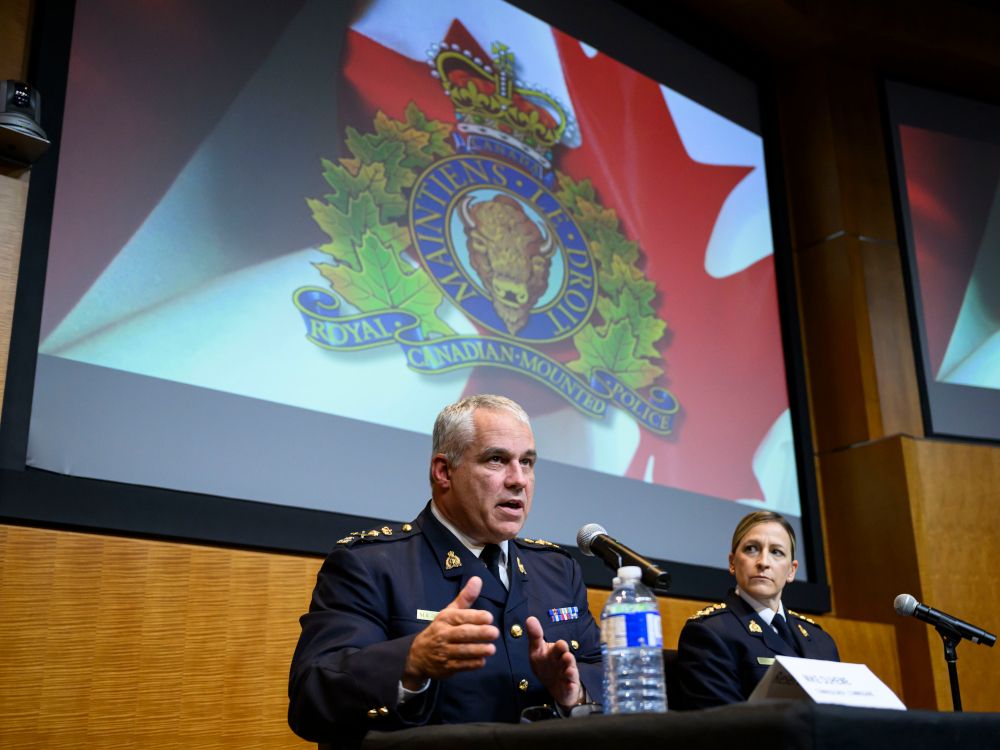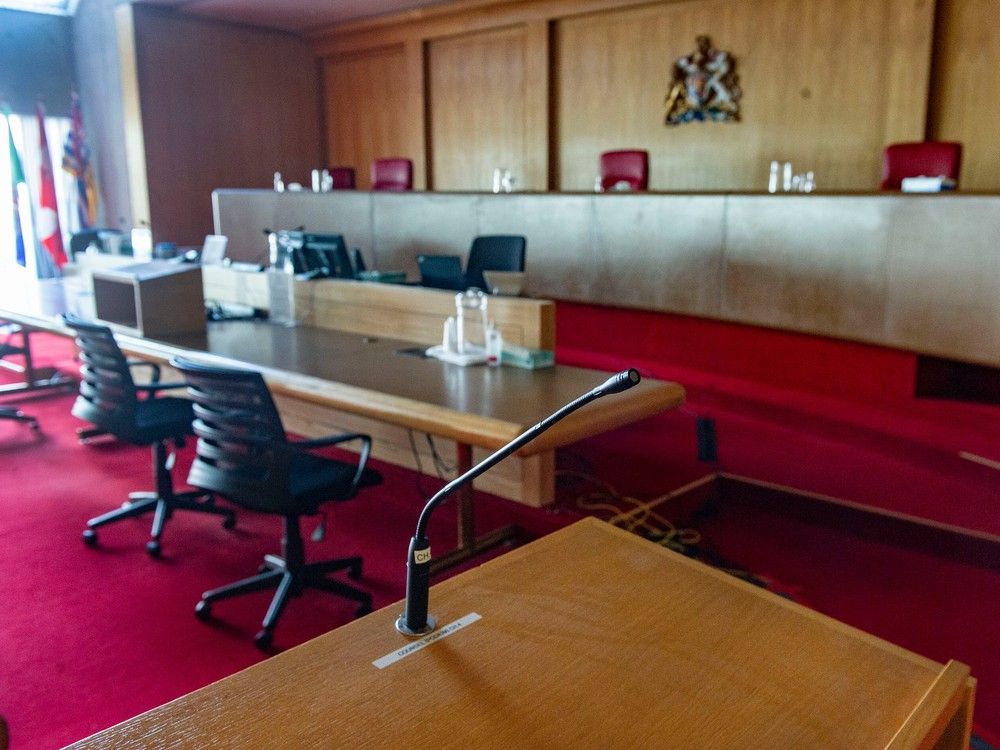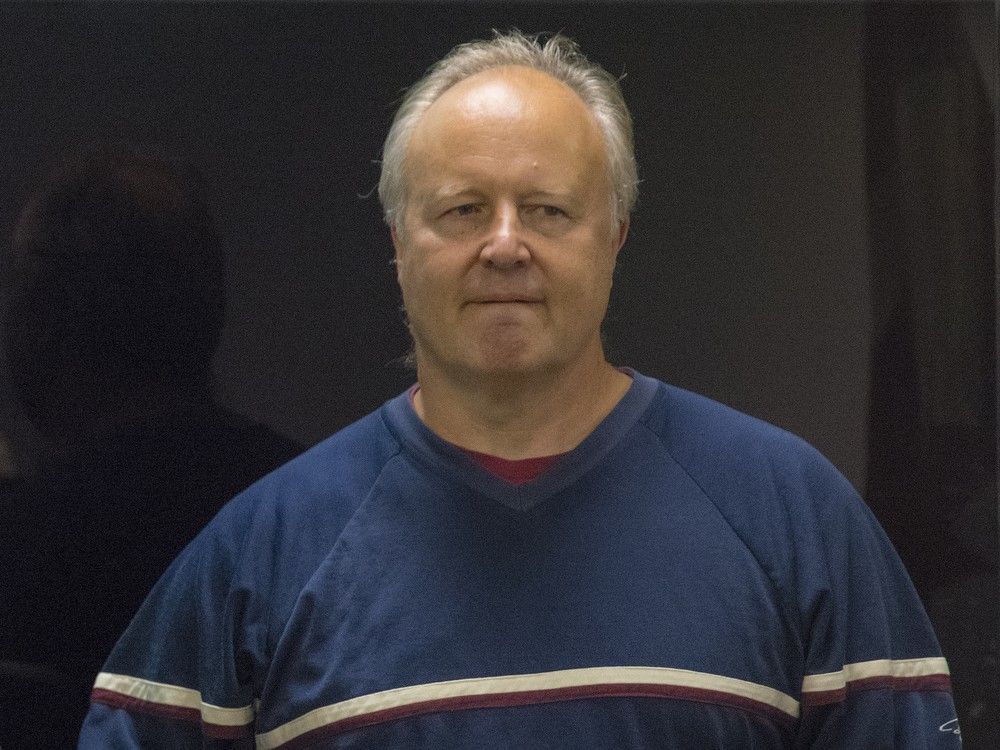The main issue issue is the balance between responsibility and accountability in the public service and the political branch. That balance is missing today.
Published Oct 16, 2024 • Last updated 0 minutes ago • 4 minute read

If the polls are to be believed, the next election will bring a change in Canada’s national government. Besides the usual time-for-a-change sentiments, the public is concerned today with pocketbook issues such as housing affordability, interest rates and grocery bills, as well as national issues such as surging immigration, high deficits, an over-stretched health-care system, an under-resourced military, how best to deal with climate change, and Canada’s place in the world.
Advertisement 2
THIS CONTENT IS RESERVED FOR SUBSCRIBERS ONLY
Subscribe now to read the latest news in your city and across Canada.
- Exclusive articles from Elizabeth Payne, David Pugliese, Andrew Duffy, Bruce Deachman and others. Plus, food reviews and event listings in the weekly newsletter, Ottawa, Out of Office.
- Unlimited online access to Ottawa Citizen and 15 news sites with one account.
- Ottawa Citizen ePaper, an electronic replica of the print edition to view on any device, share and comment on.
- Daily puzzles, including the New York Times Crossword.
- Support local journalism.
SUBSCRIBE TO UNLOCK MORE ARTICLES
Subscribe now to read the latest news in your city and across Canada.
- Exclusive articles from Elizabeth Payne, David Pugliese, Andrew Duffy, Bruce Deachman and others. Plus, food reviews and event listings in the weekly newsletter, Ottawa, Out of Office.
- Unlimited online access to Ottawa Citizen and 15 news sites with one account.
- Ottawa Citizen ePaper, an electronic replica of the print edition to view on any device, share and comment on.
- Daily puzzles, including the New York Times Crossword.
- Support local journalism.
REGISTER / SIGN IN TO UNLOCK MORE ARTICLES
Create an account or sign in to continue with your reading experience.
- Access articles from across Canada with one account.
- Share your thoughts and join the conversation in the comments.
- Enjoy additional articles per month.
- Get email updates from your favourite authors.
THIS ARTICLE IS FREE TO READ REGISTER TO UNLOCK.
Create an account or sign in to continue with your reading experience.
- Access articles from across Canada with one account
- Share your thoughts and join the conversation in the comments
- Enjoy additional articles per month
- Get email updates from your favourite authors
Sign In or Create an Account
or
Article content
But perhaps the most puzzling question for many Canadians is: Why does the federal government have so much difficulty in simply delivering core services?
What ties these policy issues and delivery problems together is how the federal government makes decisions and how it actually delivers programs. This is something that seldom gathers much public or political attention but if government is not operating effectively, results will suffer and the Canadian public will be disappointed.
At the root of these difficulties is an increasing “presidentialization” of how our government works. To be precise, power has become increasingly concentrated at the centre, in the hands of the prime minister and his political advisers. But the key to our Westminster system of government working well is balance, not centralization: balance between the elected government and Parliament, between ministers and the Prime Minister’s Office, and between the public service and political staff. In the deepest sense, the issue is the balance between responsibility and accountability. That balance is missing today.
Advertisement 3
Article content
Here are five pragmatic changes that would help restore balance in the way the government operates, changes that would benefit everyone.
• First, make cabinet once again the central place for collective decision-making, rather than just a sounding board for the prime minister. This means reducing the excessive centralization of policy advice, messaging and decision-making that in recent governments has increasingly become vested in PMO. This requires returning authority and accountability to ministers for their ministries and for their political staff.
What would also help is a right-sizing of government, with fewer agencies and small departments, less overlap in departmental mandates and a smaller cabinet. A cabinet with 39 ministers is too big to be effective; the United Kingdom’s cabinet has just 22 ministers and the cabinet in the United States is smaller still.
What is missing is not process — if anything, there is far too much today — but clear mandates and clear accountability.• Second, restore the proper roles of political staff — the so-called “political service” — and the public service. This starts with reducing the concentration of power in the PMO and re-establishing two streams of advice to ministers, one from the professional, non-partisan public service and the other from the political staff of ministers.
Advertisement 4
Article content
Again, it’s a matter of balance. A public service that provides fearless advice on policy and programs and loyal implementation of decisions is a key tenet of our Westminster system. It underpins better decision-making by every government. For its part, the “political service” should operate under greater clarity with respect to its role, responsibilities and accountability, including a code of conduct such as exists in Australia and the U.K.
• Third, strengthen the core public service by focusing on a leaner bureaucracy, with fewer layers of management and clearer accountability for getting things done. It’s time to measure productivity in government, just as in the private sector, to help manage for a high-performing public sector. A 21st-century public service needs new skills including data analytics, IT operations, Artificial Intelligence, project management and procurement. In an uncertain and volatile world, the public service must improve its policy and risk management capacity. Rebuilding a public service culture of purpose, pride and accountability for results, would help return balance to our system of governance.
Advertisement 5
Article content
• Fourth, rebalance the relationship between Parliament and the government by empowering parliamentary committees. This means fewer committees with broader mandates and greater independence. It means equipping committees with the necessary resources and staff. There are lessons for us in the way British parliamentary committees operate.
Who’s in charge of oversight?
• Fifth, clarify what the profusion of government overseers actually do and who is in charge of what. Today, management oversight on the government operations is provided by Treasury Board, the Privy Council office, Comptroller General, Public Service Commission, Auditor General, departmental CFOs and audit committees. Yet who was looking out for the taxpayer with ArriveCan or Phoenix or other recent management fiascos?
What is missing is not process — if anything, there is far too much today — but clear mandates and clear accountability.
Canada is not unique in experiencing problems with how government operates, but it does stand out in terms of the lack of public attention to these problems. In other Westminster countries such as Britain, Australia, Ireland and New Zealand, civil service reforms are being debated or implemented. Renewal of our public service and rebalancing how government works is essential if our government is to deliver programs and services that meet the needs and expectations of Canadians
Kevin Lynch is a former Clerk of the Privy Council, former deputy minister of Finance Canada and Industry Canada, and Senior Fellow of Massey College. Jim Mitchell is a former senior official in the Privy Council Office and is currently an adjunct professor at Carleton University.
Recommended from Editorial
-

Roberts: Fixing the federal public service won't happen without an independent review
-

Kaczorowski: Public service reform starts with a full royal commission
Article content
.png)
 2 hours ago
9
2 hours ago
9




































 Bengali (BD) ·
Bengali (BD) ·  English (US) ·
English (US) ·